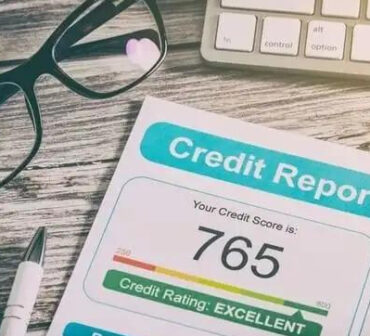How to Build Your Personal Credit

Introduction
Building personal credit is an important part of managing your finances and personal life. It’s important to understand the laws that apply to credit and establish a good credit score. It’s also essential to know the key facts about credit that many people don’t consider. Additionally, recent laws related to medical bills and credit can be confusing, so it’s important to understand how these changes affect your credit score. In this book, we will discuss the law relating to credit, key facts about credit, and recent changes related to medical bills and credit.
Chapter 1: The Law Relating to Credit
The law relating to credit is complex and can vary from state to state. Generally speaking, credit is an arrangement in which a borrower receives something of value in exchange for a promise to pay the lender back at a later date. The law relating to credit must be understood in order to build good credit.
The Fair Credit Reporting Act
The Fair Credit Reporting Act (FCRA) is a federal law that governs how credit is reported. The FCRA requires credit bureaus to provide accurate, complete, and up-to-date information to potential lenders. The FCRA also requires lenders to providea written disclosure of the credit report and its contents to the borrower. Additionally, the FCRA prohibits lenders from discriminating against borrowers based on their race, color, religion, national origin, sex, marital status, or age.
The Fair Credit Billing Act
The Fair Credit Billing Act (FCBA) is a federal law that regulates how credit card purchases and billing disputes are handled. The FCBA requires credit card companies to provide accurate, complete, and up-to-date billing information to the consumer. Additionally, the FCBA requires credit card companies to investigate billing disputes and resolve them in a timely manner. The FCBA also prohibits credit card companies from charging late fees, over-the-limit fees, and annual fees if the credit card was not properly disclosed to the consumer.
The Fair Debt Collection Practices Act
The Fair Debt Collection Practices Act (FDCPA) is a federal law that regulates how debt collectors can interact with consumers. The FDCPA prohibits debt collectors from harassing, abusing, or deceiving consumers. It also requires debt collectors to provide a written notice to consumers informing them of their rights. Additionally, the FDCPA requires debt collectors to cease communications with consumers if requested.
Chapter 2: Key Facts About Credit
There are several key facts about credit that many people don’t consider when attempting to build good credit. Understanding these facts is essential for building a good credit score and managing your finances.
Credit Is a Long-Term Commitment
Credit is not a short-term solution to financial problems. It takes time to build good credit and it’s important to be consistent in paying bills on time and managing debt. Additionally, credit can be a long-term financial commitment, so it’s important to consider the long-term effects of taking out a loan or opening a new line of credit.
Credit Utilization Can Affect Your Credit Score
Credit utilization is the amount of credit used compared to the amount of credit available. A higher credit utilization ratio can lead to a lower credit score because it indicates that you are relying heavily on borrowed money. Additionally, a low credit utilization ratio can help to improve your credit score because it indicates that you are managing your finances responsibly.
Your Payment History Matters
Your payment history is one of the most important factors in determining your credit score. Making payments on time is essential in building a good credit score. Additionally, even one late payment can have a lasting effect on your credit score.
Credit Inquiries Can Affect Your Credit Score
Credit inquiries are requests for your credit report from potential lenders. Too many inquiries in a short period of time can have a negative effect on your credit score. It’s important to be mindful of the number of inquiries you have in order to avoid damaging your credit score.
Chapter 3: Medical Bills and Credit
Medical bills can have a significant impact on your credit score. Understanding the laws related to medical bills and credit is essential in order to manage your finances and build a good credit score.
New Laws About Medical Bills and Credit
In recent years, new laws have been enacted in order to protect consumers from the negative effects of medical debt. The Medical Debt Relief Act of 2019, for example, prevents medical debts from being reported to the credit bureaus if they have been paid off or settled. Additionally, the Consumer Financial Protection Bureau has issued a rule prohibiting debt collectors from reporting medical debts to the credit bureaus until after 180 days. These laws are designed to protect consumers from the negative effects of medical debt.
Managing Medical Bills
It’s important to be proactive when it comes to managing medical bills. If you can’t afford to pay a medical bill in full, contact the medical provider to see if they offer payment plans or discounts. Additionally, if you’re unable to pay a medical bill, contact the medical provider to see if they are willing to negotiate a settlement. Finally, if a medical bill is sent to collections, contact the collections agency to see if they are willing to negotiate a settlement.
Conclusion
Building personal credit is an important part of managing your finances and personal life. It’s important to understand the laws that apply to credit and establish a good credit score. It’s also essential to know the key facts about credit that many people don’t consider. Additionally, recent laws related to medical bills and credit can be confusing, so it’s important to understand how these changes affect your credit score. In this book, we discussed the law relating to credit, key facts about credit, and recent changes related to medical bills and credit. By understanding the law, key facts, and recent changes related to credit, you can build good credit and manage your finances responsibly.
Recent Posts
-
18 Jan 2023 Business & FinanceHow to Build Your Personal Credit
-
18 Jan 2023 Social MarketingHow to build your instagram following
-
18 Jan 2023 Web DevelopmentHow to choose the right Website Platform
-
18 Jan 2023 Business & FinanceStarting a Business Ad
-
29 Aug 2022 Business & FinanceHow to increase your sales
categories
Newsletter Signup
About 729 Agency
We are a woman owned webdesign and a full digital media and marketing company focused on providing small and medium sized businesses with the tools to build their brand and bottom line.
Quick Links
Contact
4401 North Atlantic Place, Suite 200 Long Beach, CA 90805





